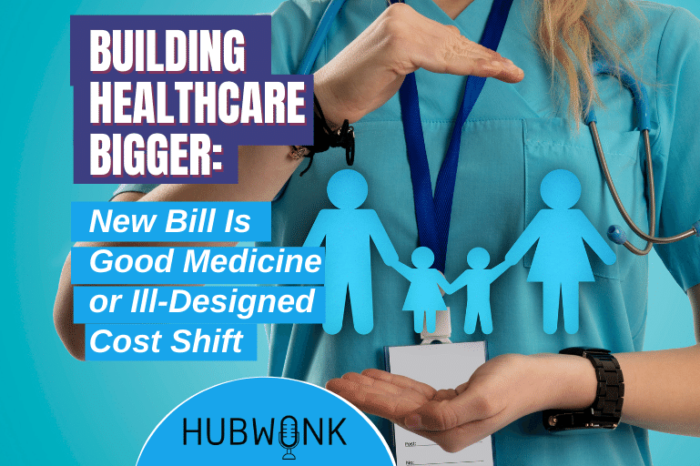Building Healthcare Bigger: New Bill Is Good Medicine or Ill-Designed Cost Shift
/in Featured, Healthcare, Podcast Hubwonk /by Editorial Staff
This week on Hubwonk, host Joe Selvaggi talks with Josh Archambault, Pioneer Institute’s Senior Fellow in Healthcare, about the healthcare provisions in the pending Build Back Better Act and their likely impact on the coverage and cost to Americans in the wake of Covid-19.
Guest:
 Josh Archambault is President and Founder of Presidents Lane Consulting. He is a Senior Fellow at both the Cicero Institute and Pioneer Institute. His work experience has ranged from work as a Senior Legislative Aide to a governor, Legislative Director for a state senator, to years working for think tanks operating in thirty-five states, and in D.C. He is a regular contributor to the influential Forbes.com blog, The Apothecary. Josh holds a master’s in public policy from Harvard University’s Kennedy School of Government and a B.A. in political studies and economics from Gordon College.
Josh Archambault is President and Founder of Presidents Lane Consulting. He is a Senior Fellow at both the Cicero Institute and Pioneer Institute. His work experience has ranged from work as a Senior Legislative Aide to a governor, Legislative Director for a state senator, to years working for think tanks operating in thirty-five states, and in D.C. He is a regular contributor to the influential Forbes.com blog, The Apothecary. Josh holds a master’s in public policy from Harvard University’s Kennedy School of Government and a B.A. in political studies and economics from Gordon College.
WATCH
Get new episodes of Hubwonk in your inbox!
Read a Transcript of This Episode
Please excuse typos.
Joe Selvaggi:
This is Hubwonk. I’m Joe Selvaggi.
Joe Selvaggi:
Welcome to Hubwonk, a podcast of Pioneer Institute, a think tank in Boston. Framed as a response to the massive disruption created by the COVID 19 pandemic, the US House of Represents recently signed and forwarded to the Senate. The so-called Build Back Better Act. The healthcare provisions in the bill seek to make healthcare more affordable by preserving American Rescue Plan insurance and expanding eligibility and benefits for Medicaid and affordable care act plans. The question for policy analysts is to determine whether the act’s changes target those most in need in the wake of the pandemic, or whether the act’s provisions simply shift costs from the private to the public sector, potentially accelerating the total cost of healthcare in America. I guess today is Josh Archambault, Senior Fellow for Healthcare Policy at Pioneer Institute. Mr. Archambault has written extensively about the federal and state policy response to the pandemic and has analyzed the healthcare provisions in the Build Back Better Act. Josh will share with us his views on the likely impact of this pending legislation and offer insight on how policy makers could design alternative legislation to better serve the needs of healthcare consumers. When I return, I’ll be joined by Pioneer Institute’s Josh Archambault.
Joe Selvaggi:
Okay, we’re back. This is Hubwonk. I’m Joe Selvaggi, and I’m now joined by Pioneer Institute’s Senior Fellow on Healthcare Policy, Josh Archambault. Welcome back to Hubwonk, Josh.
Josh Archambault:
It’s really my pleasure to be back, Joe. Thanks.
Joe Selvaggi:
Well, it’s good to have you. We’re gonna talk about some very, very big bills today. We’re gonna talk about what’s recently passed in the house to build the, a back better act. And what has recently passed before that the ARPA American rescue plan act both big, big bills. I think the price tag on Build Back Better is roughly $2 trillion. And a good portion of that has to do with healthcare, which is your expertise. Now let’s start at a very high level when we’re talking aboutBuild Back Better with regard to healthcare – what is the aspiration of this bill? What are we trying to do as it affects healthcare in America?
Josh Archambault:
Great question, Joe. And I think you might get a hundred different answers if you ask members of Congress what they’re trying to. These bills are just so large with so many different provisions. I think the ones that probably are biggest are largely around expanding coverage, kind of quote unquote, building on the ACA or Obamacare. And some of those major provisions in particular make the ACA subsidies available to a lot more Americans up to a much higher income level than were previously available, both in Massachusetts and nationally. So going forward, we’re gonna have a situation where there are employers who are looking at this and saying, should I continue to even offer insurance because many more of their employees now can access these taxpayer funded subsidies. So that’s, that’s a big piece of it. The other one is Democrats efforts in particular, to try to get some sort of coverage option for folks that live in states that have not expanded Medicaid.
Josh Archambault:
And so they open a pathway for those individuals to access the ACA subsidies for the first time as well. And that’s gonna be quite costly versus if you were to extend a coverage to those individuals on Medicaid, which tend to have a much more stricter and lower prices and reimbursements for care, that’s provided, we’re gonna have a very, a large bill as a result of this. In fact, the congressional budget office, when it weighed in said that they expect to have this bill spend about $19,000 per new life, who’s gaining coverage going forward. And unfortunately about 75% of those people already have some sort of coverage. So there’s a lot of shifting around just like there was under the ACA of where people are getting coverage in a very cost costly manner to do so. And so this obviously raises questions about sustainability going forward. Cuz the last piece I would kind of highlight here is what they did to make the bill not look quite as costly is they only made some of these expand temporary only a few years out. And so we’re gonna have the joy of watching if this ends up passing the Senate in some form, similar to what passed the house, we’re gonna be watching this debate play itself out right around election cycles in the near future. Sure.
Joe Selvaggi:
I’ve, I’ve heard many accounts when people try to nail down how much this massive bill will cost. I’ve heard anything as low as 2 trillion. That sounds like a big number, but that’s the low end all the way to 5 trillion. If we were to extend all these subsidies out for 10 years. So let’s, let’s go deeper when we talk about subsidies and trying to get more people on, let’s say Obamacare or the affordable care act. How do we do this? Do we, in a sense write people a check so that they can mail it to the insurance company or what’s the dynamic do we, or do we move them onto like a Medicaid type program where it’s entirely subsidized and, and in a sense waive restrictions, how does the government actually make healthcare more affordable on the ground?
Josh Archambault:
Sure. So the, the way that this is handled is through one small little tweak, if you will, in, in the actual rules and regulations. And so in essence, what the, the house bill did is it said that under the ACA if you have to spend more than 9.5% of your income towards health insurance, towards the cost of health insurance then you could actually access the subsidies. So it’s actually income based. So up to a certain income level, 400% of the federal poverty level. But then, and if you had to spend more than 9.5%, you could also access them. Well, what this bill does is it actually lowers it to 8.5%. So it lowers that threshold. This is the kind of boring details of how who actually qualifies or not. So, so what then actually happens if you fall into one of those buckets, if you’re in one of these states where they’re allowing you to maybe the first time in this income gap previously where you didn’t qualify, well, you go to the ACA you look at and shop the plans and then you pick a plan and then the insurance company will receive a check from the government to cover a certain percentage of, of the cost of the plan.
Josh Archambault:
And as you have a higher income level, it cover covers a little bit less. In essence, though, what ends up happening here is that it the well, the patient or the enrollee is protected from having ever increasing amount of out-of-pocket costs. The insurance company just gets a bigger and bigger check if the goes up. And so there are some serious problems here with sustainability and the cost per life, to be able to cover these individuals and in the house bill, they wanna make it as quote unquote, as affordable as possible. So the out of pocket responsibility, the cost sharing requirements to get all of the technical terms in there for the patients are very, very low. In essence, what that means is larger and larger amounts of taxpayer money is going directly to the insurance company to help pay for and make hold harmless if you will, the individual enrollee, but at the cost to the taxpayers.
Joe Selvaggi:
So I just wanna restate what you said in layman’s terms. So I let’s say I I make a hundred thousand dollars a year and whereas the old test would’ve been eligible for ACA subsidies at it was nine and a half percent. So if they cost more than it cost healthcare costs more than $9,500 to me the subsidies kicking. Now we’ve moved it to eight or eight and a half percent. So it’s 8,000 or $8,500. Then they kick in earlier. But what you’re saying is that portion of my income goes to my insurance company. What goes beyond that? The subsidy itself that’s not constrained. The insurance company says you’ve got a $20,000 premium or a $10,000 premium. There’s no constraint on that. So the government either writes that firm, that insurance firm, a $1,500 check, if it’s a $10,000 premium or a $12,000 check, if it’s a $20,000 premium, do I have that right? Is that the dynamic? So you,
Josh Archambault:
You’re very, very close. Really the percent of your income is actually just whether you qualify or not. Once you then enter the ACA exchange, how much subsidy you get is based on your income. It’s not quite as analogous as you just kind of made connected the dots. So you may actually get more subsidy as a result than you would have paid. This is actually for Massachusetts listeners. This is actually an interesting historical comparison because under RO so-called Romney care in Massachusetts, this whole discussion was very black and white. If you were offered employer based insurance, you could not qualify for a subsidy end of story. And there a rationale behind that was, is they did not want to impact whether employers small employers in particular offered insurance. They wanted to reserve the subsidies to be spent for those that were uninsured or simply were having to buy insurance on their own and could not afford it.
Josh Archambault:
They wanted employers to keep their commitment, to continue to offer insurance. The federal law took a different approach, which we have just kind of talked through different approach that they’ve taken, which is a little bit more complicated to run the math. But the end result is a lot more people, especially under what passed the house, bill a lot more people qualify. And it puts tremendous pressure on those small companies who if you go to any chamber of commerce breakfast or anything else constantly say healthcare costs by far one of my biggest expense. And it is something that they wish would in theory, just kind of go away or have a little bit more certainty for what it used to be 30 years ago or 20 years ago. And so what I think is concerning about potentially what happens if this becomes law long term, is that you have a whole lot of employers who not only have uncertainty about what the federal government’s role is going to be and who qualifies because of the timelines, the temporary timelines that they put into this and business wants certainty.
Josh Archambault:
That’s how they plan and move forward. But second UFS now set up the situation where you have a lot more taxpayer funded money going towards a higher income group of individuals who didn’t qualify for these subsidies long term. And there could be some unintended consequences for the lower income communities or others in which they’re accessing coverage. I is a problem. And the final thing that I would say here, Joe, and wrote a piece about this for Forbes is that there are some concerns that this expansion actually is worse for people with preexisting conditions. Let me explain that for one second, for individuals who have a preexisting condition who are employer based insurance in general, they not only have more robust coverage, but they have lower out-of-pocket costs when we looked at and compared the plans that were on the ACA versus the plans that are typically offered by small employers.
Josh Archambault:
We that for people with preexisting conditions who will, again, the incentives are aligned for them to be pushed into the exchange and off their employer, based insurance for them, they will have fewer options of providers to go see. So their current providers may not be available to them. And second, they will probably pay a lot more money out of pocket under the ACA plans than they would under their employer plans. So there’s some real unintended consequences. I’m not sure Congress has fully internalized as they expand up the subsidy ladder into the increasingly into the middle class.
Joe Selvaggi:
So forgive me, Josh, I’m a little bit confused because again, I used to be an employer and we offered plans for our employees. We were very happy effectively to subsidize individual employees and engendered a sense of loyalty and professionalism. So is, is employer based insurance something we’re trying to encourage or discourage or whether we’re intending to do it, will this have the effect of having more employers provide it or just walk away and say, look because of the uncertainty and because I can’t compete with the federal subsidies I’m gonna get out of the business of ensuring or helping to ensure my employees.
Josh Archambault:
Yeah. These are very good questions, Joe. So there’s probably two conversations to be had on this one. The first one is your first point about is employer based insurance. The model that we actually want going forward. And I’ll just say there are pros and cons to the system. I think that there have been real challenges with the dysfunction that we see in our healthcare market that are slightly, that are driven by, in part, by the way that we have set up the tax benefit nature of employer based insurance. In essence, just to put in a sentence, but the problem is, is that the patient is disconnected from the cost because really the person who is the plan is the HR department or the CEO of the company. So the insurance, company’s not really interested in being patient centered, it’s really interested in what the CEO or the HR department is gonna offer their employees that has led to some big unintended consequences, unfortunately, that has led to some of the dysfunction, but that’s one conversation.
Josh Archambault:
The second conversation relates to this bill in particular, and it says, okay, well, let’s say that first, the sake of argument, we wanna move away from employer based insurance, which is not even the stated goal of what this bill is, but let’s say that is something they intend to do. Is this the best way to accomplish it? And I think the concern is that not only will this lead to a massive erosion for a lot of small businesses to just drop it because they can’t compete with the subsidy, the very generous subsidy that there’s the taxpayer concern long term, as we continue to subsidize write these large checks to insurance companies every single year for the subsidy amount, but is there a better way if we were to transition away from employer based insurance, which I think those right and left economists on the right and left would say there would be some benefit.
Josh Archambault:
I think there would be universal agreement that this is probably not the way to do it because of the blank check nature that the subsidy structure and it’s set up to the insurance companies. I think you would like to see reforms that at least cap the subsidy amount based on your income, just to say, Hey, if you make 150 FPL, this is how much you’re gonna get. If you make 200%, this is how much you’re gonna get. And you know, what the insurance companies would do. They would design plans that meet that subsidy loan instead, right now it’s whatever the Delta is for the subsidy amount, they just keep getting paid more and more. And I think ultimately that’s unsustainable going forward and it’s, it could potentially hurt the patients. And I think tax payers generally speaking, will pull money away from other public priorities, whether it’s infrastructure national, the fence, or anything else, those become a lot harder to pay for when so much of our economy is just being sunk into subsidizing health coverage.
Joe Selvaggi:
I was intrigued by your Forbes article, which did actually say, you know, these are some of the unintended consequences, either some of the victims of the new system. You, you mentioned some earlier us with preexisting conditions are, are far better off in their employer system than, than into an ACA plan. Were you to have the ear of your I guess where this is headed is to the Senate maybe a healthcare committee or a reconciliation committee. What would you rather this be written as what would, what would, in a sense fix the problems that you find the Forbes article?
Josh Archambault:
Yeah, I mean, I think I would have some really candid conversations on whether we want to continue to extend the subsidies up to this middle income class to begin with period because of these unintended consequences. But if they were committed to keeping that upward pressure and expansion of that, then I would first and foremost advocate that they should at least CA the subsidy levels. As I just mentioned, that would at least bring some common sense and rationality to this, that people would then be focused about how do we offer the best product to individuals with a subsidy that meets the budget that has been allocated for this right now, it’s a blank check. And I think unfortunately when you have a blank check and you’re subsidizing something, you get more of things you don’t always want. And so, as a result, we’re seeing higher and higher premiums, larger and larger amounts of money going to health insurance companies.
Josh Archambault:
And we’re not seeing if you’re spending more money, we’d wanna at least see an increase in the quality of care or the efficiency of how the care has developed. I don’t think we’ve seen that since the ACA has passed or even in the last 30 years. So we look across the healthcare system, as we’ve seen premiums go up a hundred percent, 200% in a lot of markets. We haven’t seen that what we see in technology in other industries, an adjustment in efficiency, or increase in quality. And I think that’s ultimately the problem here and why this becomes unsustainable long term is that we’re not seeing that, you know, think about your iPhone. You, you spend a lot more on a smartphone or an iPhone than we did 10 years ago, five years ago. But I think most people would say, yeah, we get a lot more value there.
Josh Archambault:
It’s a computer in your hand, in your pocket. It’s quite amazing what you get for paying a little bit more. Unfortunately, we don’t get a lot of that in healthcare. As a result, we, we see the prices varying significantly for the exact same services. We see them using the same machine that they used 10 years ago, but it’s now charging 10 times more for the same machine. There hasn’t been an increase in technology. So while our healthcare system does have some really innovative areas, I think there’s probably you universal agreement based on personal experience for many of us, but also just looking across at the aggregate there’s significant room for improvement. We don’t want to just keep subsidizing whether it’s just the insurance card or the kinds of care that aren’t delivering more value.
Joe Selvaggi:
So I want to have time to focus what we’re doing here in Massachusetts on, on healthcare. But before we leave the Build Back Better question. I wan to ask, is there anything in the bill? I mean, we’ve talked about subsidies and closing gaps and maybe some of the unintended consequences. Is there anything in there that actually is reform oriented that will, in a sense bring market forces to bear on healthcare, such that we’re getting more value for our, our dollar, or are we simply just throwing more money at a dysfunctional and very expensive system with the hope that consumers will be happy that their insurance bill is smaller.
Josh Archambault:
Yeah. I unfortunately I don’t look at this bill and see a lot of silver linings. I think there’s a couple that I would just highlight. There is some provisions in there for reinsurance programs. And again, these are one of those kind of complicated mechanisms to try to make the cost of insurance more affordable. It doesn’t unfortunately drive down the cost of insurance, but at least helps make sure that individuals are protected from some of the spikes. In essence, reinsurance is you’re able to put my money in and kind of reduce the cost of insurance going forward. So those are roughly 10 billion in the bill to start down that process for states to look at reinsurance programs and a number of states that have started down this route. They have had some success, you know, premiums going down 10, 20%, depending on what the dynamics of what’s going in the market.
Josh Archambault:
In essence, why you wanted do this is for those that are uninsured, that may be younger and cost is a big expense for them. If you’re able to have the premiums be a little bit less, some of them will come off the sideline and your risk profile goes down. You’re a little bit healthier. And so as a result, the premiums are able to go down. So there’s, that’s one mechanism. It’s not a perfect one. Doesn’t not a silver bullet. Doesn’t fix all the problems in healthcare, but it can be an effective way to try to tackle some of this, the increasing premium issue. The other one I might highlight is one of the previous COVID bills had put in place requirement that states could had to stop checking eligibility for those that are on the Medicaid program. And as a result during the public health emergency.
Josh Archambault:
So as a result, there’s a number of individuals who no longer qualify for the program, their income’s too high, they’ve moved out of state number, any number of reasons in that they’re still on the Medicaid program. The insurance companies, the managed care companies are being paid every month for their coverage. And there is a provision in this bill if it were to pass and stay in the Senate version, that’s starting in April of 2022 states could at least restart eligibility. Redeterminations why does this matter? Well, Medicaid is run by states and as a result, the states have to pay a portion of that cost. And so as individuals sit on the program, that means more and more state dollars are going to paying for people who aren’t eligible for the program. And you have to find that money somewhere. So that comes from small businesses who have to pay slightly higher tax rates to pay for that. For individuals, you have to find more or money to pay for that. So I hope that there’s some bipartisan agreement, whether it’s on this bill or another, that we are able to restart the eligibility determinations so that we make sure that we’re only paying for Medicaid coverage for people who are in fact eligible,
Joe Selvaggi:
To be clear, we’re not talking about the proverbial pushing the woman off the cliff in the wheelchair. When we talk about eligibility, we’re talking about people who had had no scrutiny of their Medicaid application during COVID, and now in April of 2022, someone would look at their file and say, look respectfully you make too much to be eligible for Medicaid. You need to be on one of the more either the ACA or something else, is that right?
Josh Archambault:
Correct. Yep. Or an individual has them and think about it in new England. The states are close. If somebody were to move the states don’t do a great job communicating with each other and whether somebody’s moved, they would at least at minimum say, you know, oh, this individual looks like they no longer live in our state. So we’re gonna stop paying the managed care company every month for somebody who is not even here.
Joe Selvaggi:
All right. And of course that money being aid for the person who lives in here is money. That’s not going to schools and roads and police and all the other great things we want from government. So a costly mistake, so that that’s some good news. We were, we had to look around quite a bit, but we found some good news there in the build back, better plan. Let’s focus now on Massachusetts. We’ve we were, I guess, pioneers in the role healthcare reform. And we got quite a bit of money in the American rescue plan act. I think somewhere around $4 billion. We’re talking about that’s being debated up on the top of beacon hill. What can you say about how that might be spent on healthcare here in Massachusetts? What are the issues being debated here?
Josh Archambault:
Sure. So the, the kind of status of where this is, is there has been a $4 billion bill that’s made its way through the legislature. And there’s been a lot of disagreement between the governor about who gets to appropriate this money, or whether it’s the legislature. And the legislature said in 163 page bill we’re, we’re gonna tell you how to spend the, at least the first $4 billion. Now, now mind you additional money went to the states excuse me, to the cities and towns that they have to spend as well. But the state is also funneling some of this money down. And one of the interesting initial observations in some of the press coverage was there was quite a bit of earmarking in this bill that didn’t really seem to be connected to healthcare or COVID related relief, you know refurbishing you know, gazebos in certain towns money going towards Irish, social clubs road repaving, all, all those good sorts of Christmas tree earmarks that we typically see in some of these bills, but, but putting it aside in the grand scheme of things, the book, the bulk of this money, I think, is spent on areas that are public health related or healthcare related there’s millions of dollars spent for on local health boards, $200 million that they’re allocating to local health boards, some for data collection and other infrastructure.
Josh Archambault:
I think there’s really good questions to be had about how did our public health infrastructure work during COVID, what could they have done better? Where did they fail? I think there will be continued debate here on how should this money actually be spent. And are we in a much stronger position going forward? There’s 260 million that is being allocated to finance really strained hospitals. And so again, this has been a perennial issue in the legislature about who qualifies as a financially strained hospital, how well run are these hospitals. And I think Pioneer’s interest here is just around accountability and transparency of how this money will be ultimately spent to make sure that on the back end, after spending these billions of dollar, that we end up with a health system that is stronger and more efficiently run, and this isn’t just kind of being dumped into a black hole here, but there’s a number.
Josh Archambault:
I mean, we could literally spend 30 minutes going through all of the earmarks of money spent on behavioral health loan, re payments for counselors, which there’s certainly a need here. We hear almost to every day of examples in which emergency rooms are strained by behavioral health cases, in which there are not enough behavioral health beds going forward. So it puts hospitals in a tough spot when they’re trying to respond to COVID related issues when they have so many folks that are in crisis from a behavioral health standpoint going forward. So these are, are some of the overarching debates. It’s a lot of money being spent on community healthcare centers and the behavioral health world going forward. The real discussion to be had going going forward is just what sort of tracking and understanding what we have on how the money is actually being spent and whether it’s making a positive impact or just being spent for the sake of spending it.
Joe Selvaggi:
Well. Yeah, well, gosh, I would imagine one could be very sympathetic to the fact that COVID 19 was an extraordinary strain on the healthcare world. So financially stressed firms could either be financially stressed, cuz they’re poorly run or financially stressed because COVID imposed an extraordinary burden on, on that firm, how who’s in the business of around, which is which how, how do we know that we’re not merely subsidizing a, a a dysfunctional healthcare organization or whether they were in the front lines doing battle with COVID and this extraordinary event, once, once we’re past it, they can return to some sense of normalcy and that that money will have been well spent effectively keeping alive, affirm that endured an extraordinary strain.
Josh Archambault:
I think you’re asking exactly the right question, Joe. I’m not sure that there’s a great answers here in this bill or in the conversation on beacon hill. Unfortunately, the political are aligned here to not have some of those tough conversations. I mean, the other debate in this bill that has received some attention has been around payments for essential health workers and who qualifies for that. There’s been some disagreement about the governor’s definition of that versus what the legislature, the legislature tries to set up a commission, a massive commission. I think it’s over 30 people to determine who should qualify and how to get those payments out. And I think this is, this is where this governing gets really complicated, really fast. I think there’s general agreement that most people in the Massachusetts and other states were really appreciative of healthcare workers and others that were coming to work every single day during the most uncertain days of the pandemic and really putting themselves at, at risk.
Josh Archambault:
But once you start to get into conversations around teachers, social workers, foster parents, you know, garbage individuals working outside, I think it gets a little harder in a little trickier to find universal agreement on who gets these additional payments. So whether it’s a large institution being given money, just because they’re a healthcare institution or involved in healthcare, or whether it’s an individual person who the state is determining, they want to now give additional money. I, I think at minimum there needs to be a robust public discussion about this, not just inside the golden dome on beacon hill, but then ultimately I think there needs to be some transparency about, do we actually deliver this money? What, what is a result of this money, particularly for the institutions? Are they actually investing the money so that they’re better prepared for a pandemic long term? Or are they spending this money in a way to just backfill salaries for individuals or others in which there are underlying concerns about whether this is a going concern going forward from the business side.
Joe Selvaggi:
So getting close to the, our the end of our time together. So I always like to ask us particularly around direct policy questions. You mentioned the the governor and, and the legislature having a healthy, lively debate on who, whose prerogative it is to decide where this money is spent. If Josh Archambault were a king for a day or a, an all powerful governor. How would you want to see some of this money spent knowing that you are a healthcare policy expert and, and, and want to see the most value for the buck, the most efficient use of that money to ensure that the most people can be helped? What, what would you do?
Josh Archambault:
Well, I mean, this, this money from the federal government was allocated to try to help with pandemic preparedness. So for me, that would be the first and foremost, my focus, I, I, I think whether gazebos or helping the Wang and Schubert theater with money is probably not going to be near the top of my list. So I think that’s the first thing. And, and, and I think my criteria would be twofold. One is to make sure that we are understanding where there were gaps, where, where were there problems? Was it on the data side? Was it on the infrastructure side? Was it on the communication side? If we were to come into 20, 23 or 2025, what needs to be in place now that we don’t have to make sure that our ability to continue in some sense of normalcy when another pandemic comes, cuz inevitably there will be another one.
Josh Archambault:
How do we make sure that we have that flexibility and infrastructure in place to be able to, as a society and the state move forward? Some of that is related to human infrastructure. We don’t have a enough certain kinds of providers. And so I, I am sympathetic to looking at ways to increase the amount of providers that we need to be flexible. I, I would make sure that there’s a discussion about removing barriers that are in place. Some might have financial implications, some may not. And then finally, I probably wouldn’t spend all the money if we can’t find ways that actually meet towards goals. And so perhaps whether it’s returning the money, whether it’s giving property tax relief, I mean, for individuals that were struggling to get to work there, there is something here to be said that the, the help most helpful thing for them going forward would be some sort of reduction in the cost of their living instead of just spending the money on some of these pet projects going forward. So for me, that’s, I would make sure that we have some pretty strong criteria by which we’re trying to make these decisions looking at how do we best prepare and how do we actually help people that were impacted by the pandemic?
Joe Selvaggi:
Well, I’m gonna ask this, not knowing the answer, but this is, you know, healthcare and healthcare research is part of the policy. Part of the, in a, a pioneer, are you planning on doing any research in, in a sense preparing a plan that said this is what Massachusetts or the, the nation in general should be doing to prepare for the next pandemic if it’s a next year or a hundred years, hence is there any research where we analyze what we did right. And wrong and layout let’s say a, a a menu or a a recipe for moving forward in, in the future.
Josh Archambault:
Yeah. You know, it’s something that we have had conversations about and there’s a lot of our work that I think is very, very relevant to this conversation that, that the complex answer to this though, is that there’s both a federal and a state discussion to be had here. So at the state level, certainly the questions that need to be had are what are the barriers that were in place pre pandemic and maybe still are in place that would allow the state, the health system be a lot more flexible going forward. These are things that we’ve kind of touched on in some of our prior conversations, whether it is across state line telehealth, or making sure that all providers can use telehealth, whether it’s allowing certain providers to have the flexibility, to practice on their own for things that they’ve been trained to do something called scope of prep, instead of always having to be, have oversight or physical oversight, whether it’s the ability for health institutions to have flexibility, to move staff to different sites.
Josh Archambault:
There’s some barriers to that that had to be waived during the pandemic, whether it’s institutions having the flexibility to open more ICU beds without having to go through a massive credit process and application with the state to get permission to do so. There’s a lot of things that the state could do on the policy side moving forward. I, I certainly think pioneers done lots of work in the space around data reporting, whether it is in nursing homes or others, whether there’s certainly a lot of improvement to be made there to make sure that when we do have something pop up, not only is it being flagged for the relevant state authorities, but the public is able to be informed and that data is easily accessible. So people understand what’s what’s going on, where the high risks are, where the cases are coming from, instead of feeling like they’re ill-informed.
Josh Archambault:
And then for our podcast in the future, certainly a conversation to be had about what needs to happen at the CDC at the FDA and vaccine development. If that’s part of a pandemic response that there’s lots of opportunities there, I think for improvement and ways to tweak, even now, it doesn’t have to be for a future pandemic. So people better understand what’s going on, what the risks are. They can properly assess for themselves and their families going forward. And so we can avoid some of the issues that we had in the past, or the fact that governors or others had to wave a lot of these barriers that were in place.
Joe Selvaggi:
It’s interesting. Everything you prescribe, I think is Pioneer’s research going back 20 years many of the provisions you described as being, making us more ready for the next pandemic is just good advice for healthcare in general. So there really doesn’t seem to me by my reckoning and all shows we’ve done on healthcare, and COVID, much light between good healthcare reform and preparation for the next pandemic. They seem like almost identical prescriptions.
Josh Archambault:
I think there’s some truth to that. <Laugh>, I mean, we don’t need to make this overly complicated going forward. You know, when you’re sick, there’s a lot of complexities to that. And so we want to make sure that we have the most flexible dynamic, innovative system that we can have. And a lot of that is looking at incentives and removing barriers to be able to address that, whether it’s COVID-related or whether it’s other chronic condition related.
Joe Selvaggi:
That’s a wonderful place to end the show. We tied it all together with a nice bow at the end. So thank you very much for joining the show. Again, Josh you’re as always a very informed and clear guest and our listeners are grateful for it.
Josh Archambault:
Great. Thanks, Joe.
Joe Selvaggi:
This has been another episode of Hubwonk, a podcast of Pioneer Institute. If you enjoyed today’s episode, there are several ways to support the show. It would be easier for you and better for us. If you subscribe to Hubwonk on your iTunes podcast, or podcatcher, it would make it easier for others to find Hubwonk if you offer a five-star rating or a favorable review, we’re always grateful. If you want to share Hubwonk with friends, if you have ideas for me, or suggestions or comments about future episode topics, you’re welcome to email me at hubwonk@pioneerinstitute.org. Please join me next week for a new episode of Hubwonk.
Recent Episodes:

Sinking U.S. Shipping: Ineffective Law Creates Waves for American Economy
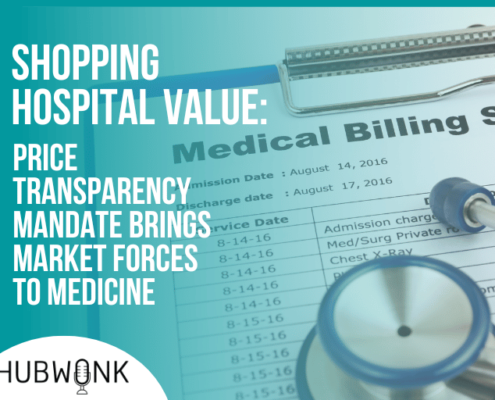
Shopping Hospital Value: Price Transparency Mandate Brings Market Forces to Medicine
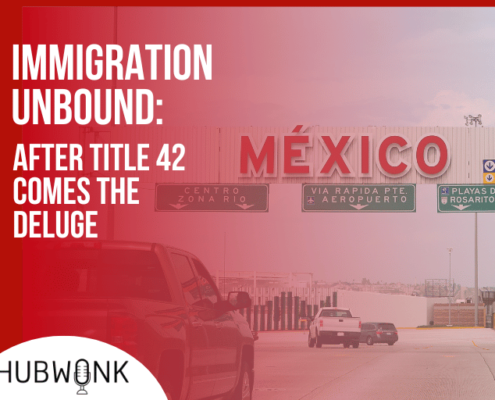
Immigration Unbound: After Title 42 Comes the Deluge
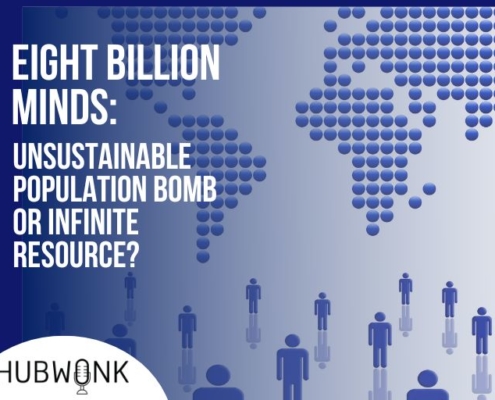
Eight Billion Minds: Unsustainable Population Bomb or Infinite Resource?
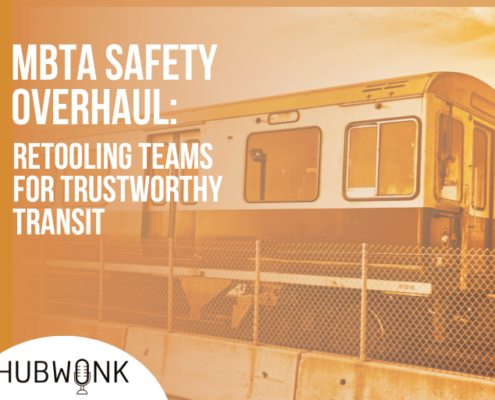
MBTA Safety Overhaul: Retooling Teams For Trustworthy Transit
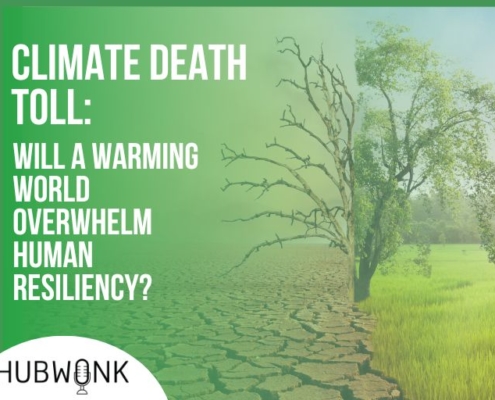
Climate Death Toll: Will A Warming World Overwhelm Human Resiliency?

Legal Property Theft: Legal Defense Against Town Taxman Taking Neediests’ Deeds


